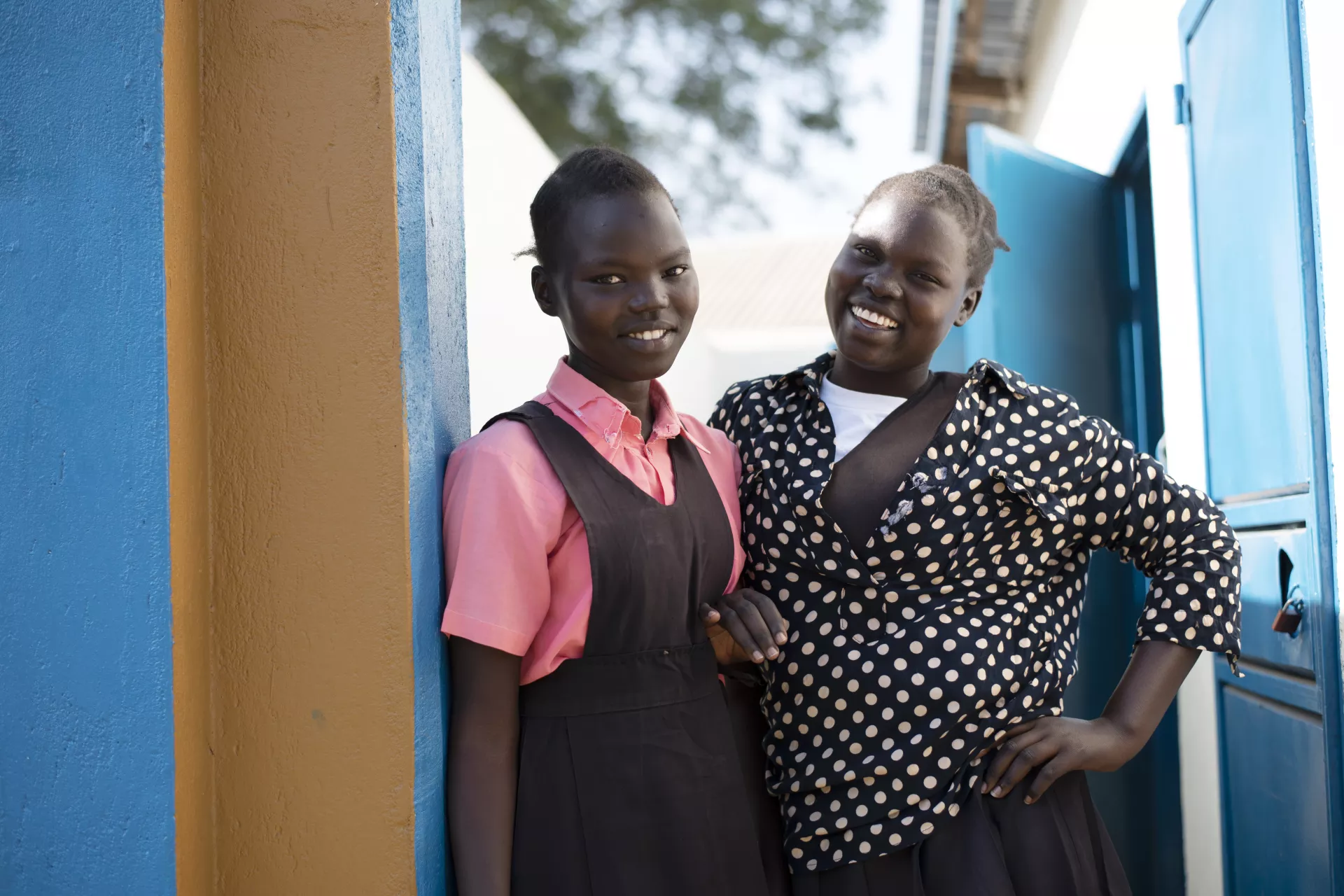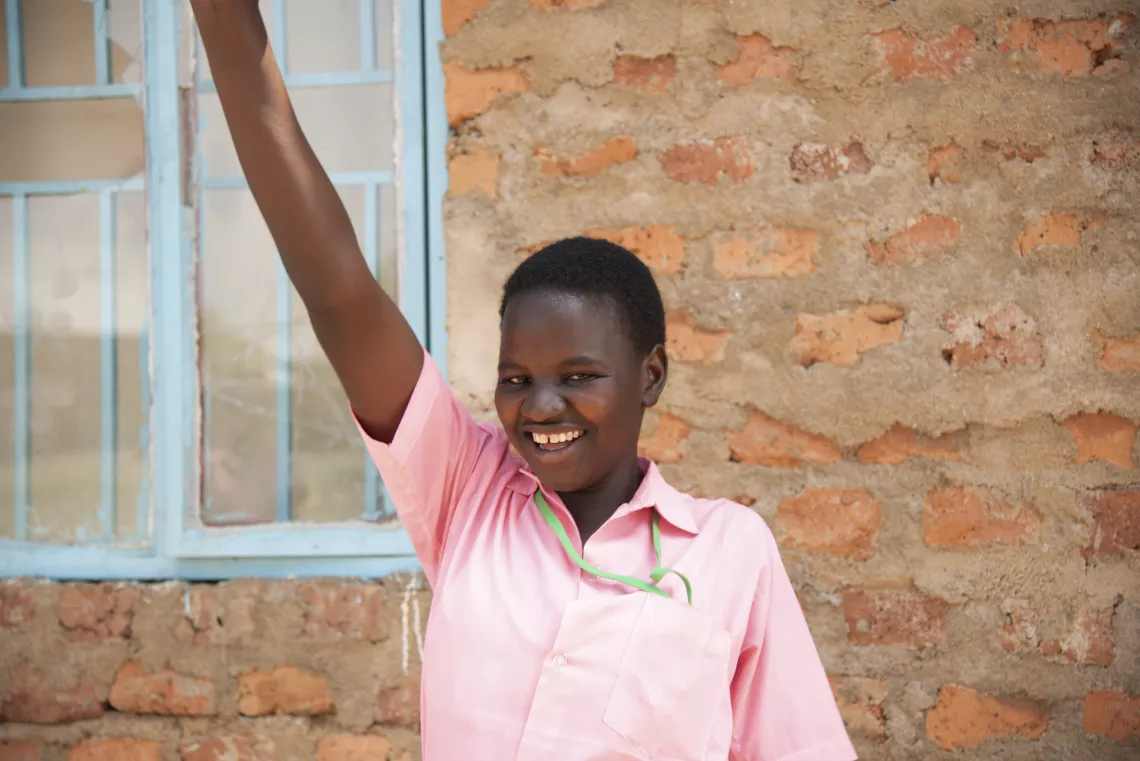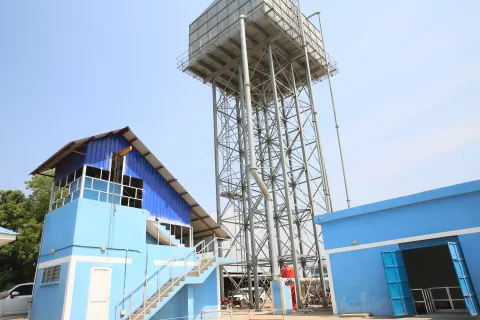Managing the monthly visitor
Assisting girls with managing their menstruation is helping their education

TORIT, South Sudan - What have code red, cranberries and communists in common? They are all code words and slang referring to the menstrual cycle. While the monthly visitor has many funny euphemisms, the topic is dead serious for girls across South Sudan as it has the power to jeopardize their futures.
“We would make a makeshift pad using old clothes or a rag or basically anything,” says Jonoka Akai, Deputy Head Teacher at Dumak Primary School, while identifying what in his office could be turned into a pad if one of the female students were in need of one. “If we were not able to provide the girl with anything, she would go home and not return until her period was over. That could be days or even a week,” Jonoka adds.
Disposable sanitary pads are not easily accessible in South Sudan, and when they are, they cost more than a meal. In a country where more than half of the population is faced with severe food insecurity, sanitary pads are not on the menu and the girls will stay home the days they are bleeding. Normally the period lasts for 3-6 days every month, which translates into 36-72 days per year, an immense amount of education lost and poor educational outcomes.

“The bag had underwear, reusable pads, soap, a torch, drying line for clothes and a nail cutter,” Elizabeth Mam (17) declares. She is in primary 8 and one of the girls at Iluhum Primary School in Torit who has received a ‘dignity kit’ from UNICEF. “I had only one pad before, but it is not enough. You need many, as you need to change them frequently and wash them. Now, I have enough to manage my period and I don’t miss out on school.” “The dignity kit has helped me because I have what I need now and can plan for my period,” says Josephine Bakhita (17).
While the idea behind the torch is for girls to move to the outdoor latrines more safely after dark, Nite Toffi (19) reveals that it also helps her study. “We don’t have power in our house. With the torch I can study at night.”
UNICEF rehabilitated several boreholes and latrines in schools in Torit last year, making it easier for girls to manage their periods. Before the repairs, the children had to bring all the water they would need for a day or fetch water during the day. To stay clean while menstruating, more water is needed and with easy access in the school yards this is no longer an issue. The girls also had to balance over the latrine hole while changing the pads and cleaning themselves.

Fatna Nanila (17) takes us to the newly constructed latrine block at Faith Ministry International Academy, which has a changing room for the girls.
“When a girl gets her period, she can go to the room, clean herself, change the pad and then return to class. She doesn’t have to go home, and she is not missing class,” Fatna explains as she opens the door to a room just a wee larger than a square meter.
With the final exams being just around the corner, the girls in Torit can focus on their studies rather than worrying about periods. “With toilets, water and pads available, I just need to remember what I’ve studied,” says Eliza Amama (16). “I’m not nervous though, I’m confident,” she finishes.
Before the COVID-19 closure of schools in South Sudan, 2.8 million children were out of school and the majority were girls. Access to education is a child right, and UNICEF is committed to removing impediments hindering access to education for all children but in particular girls as they are disproportionally affected. Distribution of dignity kits and ensuring adequate access to water and proper latrines at school is an essential part of improving access to education for girls.
UNICEF South Sudan is grateful for the generous contribution from the Federal Republic of Germany through KfW Development Bank.




